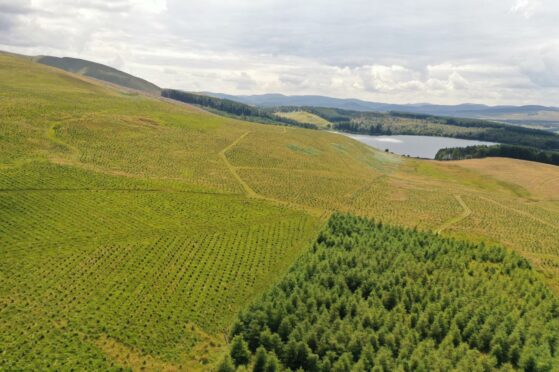Sales of forestry and land suitable for planting trees are expected to exceed £300 million this year, according to Goldcrest Land & Forestry.
The rural agency’s partner, Jon Lambert, made the comments as the company prepares to launch more than 6,000 acres of forestry, and land suitable for planting, to the UK market for a combined price of more than £34m.
Mr Lambert said sales so far this year have already overtaken the £200m achieved in 2020 and the total calendar figure is likely to be between £300m and £400m.
“Interest in British forestry is extremely robust and land previously considered worthless is increasingly precious,” added Mr Lambert.
He said the market was experiencing a surprising demand for “teenage crops” and forests younger than 20 years old were driving competition, while demand for bare ground suitable for planting showed no signs of slowing down.
“Undoubtedly, the biggest story this year has been the insatiable appetite and rocketing prices for bare ground suitable for tree planting, an upward trend that has characterised the market in recent years and shows no sign of abating,” added Mr Lambert.
“Grazing hill ground that was worth £3,500/hectare five years ago is now comfortably at £14,000/hectare.”
He said Goldcrest Land & Forestry‘s autumn launch comprises eight properties going on the open market, ranging from 90 to 1,025 hectares and from plantable hill ground and young plantations to mature conifer forests.
Properties include just over 300 acres of hill ground in Angus with planting and carbon sequestration potential for sale for offers over £1.4m, and the 2,500-acre Westloch Forest Estate near Peebles in the Scottish Borders which is on the market for offers over £11m.
The company is also preparing to launch a 1,050-acre farm in Fife to the market for offers over £3.5m – the property includes a mix of commercial planting land, marginal ground, peat and sites with solar energy potential.
“Timber prices have quietened a little in the second half of the year with prices dipping below the £100/t mark but investors remain confident in timber as a global commodity,” said Mr Lambert.
“Purchasers believe we will see future timber price inflation and are prepared to pay for some of that upfront.”
He added: “From private investors and ESG (Environmental, Social and Corporate Governance)-motivated buyers to forestry and natural capital institutional funds, relentless demand has underpinned a buoyant year in the forestry industry.”

